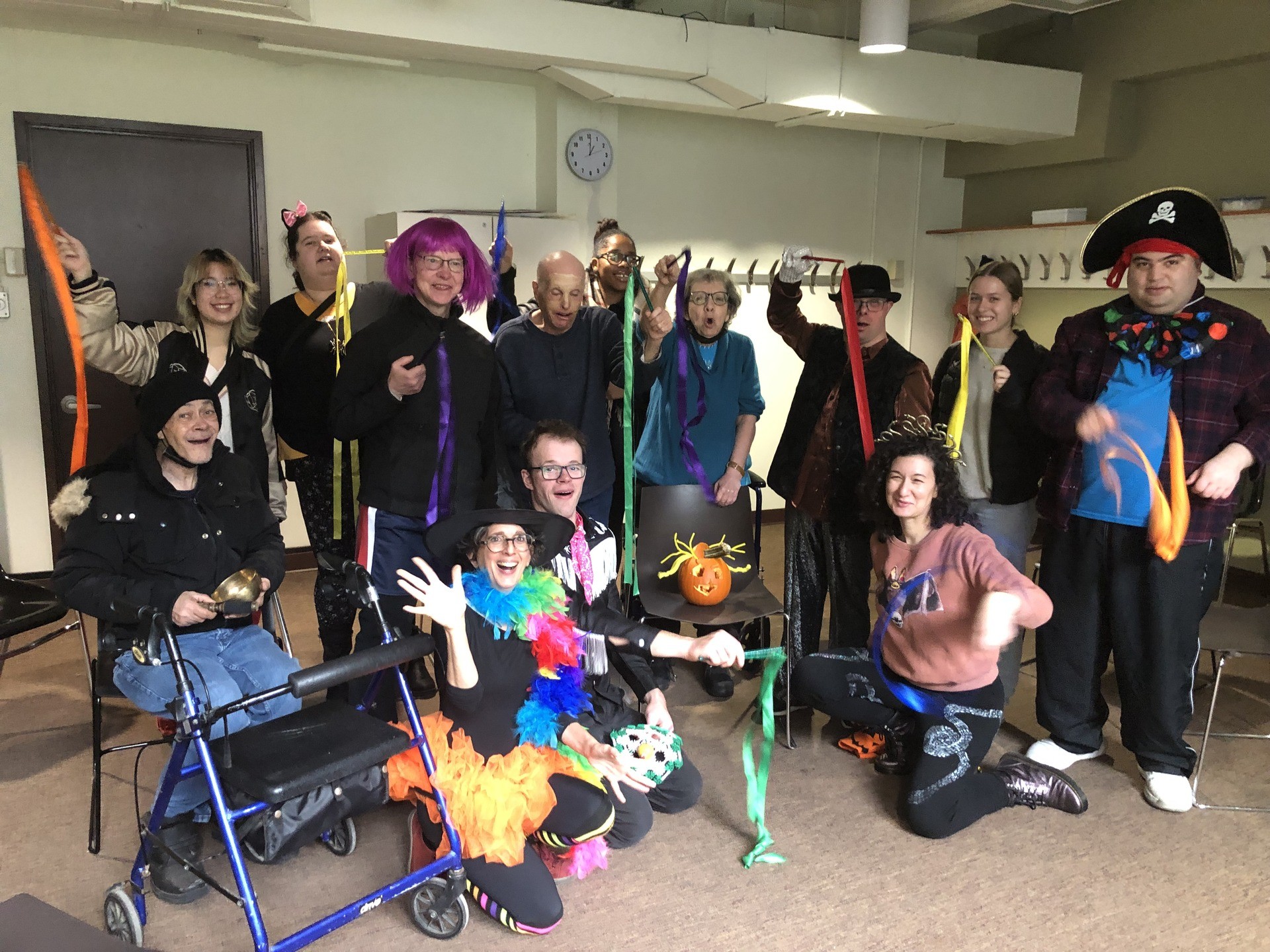First francophone cohort graduates from Concordia's creative arts therapies programming for neurodivergent adults and individuals with intellectual disabilities
 Credit: Danusia Lapinski
Credit: Danusia Lapinski
Concordia’s Centre for the Arts in Human Development (CAHD) runs a creative arts therapies program for neurodivergent adults and adults with intellectual disabilities. Two years ago, it launched a pilot project geared at francophone participants — and now the first cohort has completed their journey.
Serving 10 to 14 individuals per year, the program offers a combination of art, music, dance and movement and drama therapy. It has been met with overwhelming success. Recently, caregivers and community workers got the chance to attend the graduation of 12 participants.
“During the ceremony, they were bursting with pride when they received a personalized certificate of completion. It was a moving experience for them,” says Guylaine Vaillancourt, associate professor emerita of music therapy.
The programs offered at the CAHD, a Concordia research centre, stand out from other services available in Quebec and Canada. All the modalities in creative arts therapies are offered in both English and French. The centre's main goal is to offer anglophone and francophone participants with intellectual disabilities and autism the experience of life-changing programs in creative arts therapies, while also training graduate students and performing research. The English program runs three full days a week, and the French program runs two full days a week from September to May.
A unique training opportunity
“The CAHD is the only centre hosted by a university in Canada that is providing clinical training and supervision for its graduate students in art therapy, drama therapy and music therapy,” explains Danusia Lapinski, French program coordinator at the centre.
“In the last two years, the pilot French program has also accepted interns in dance and movement therapy.”
Lapinski adds that interns can learn about disabilities and autism and to assist and experience additional modalities other than their own.
“Graduate interns are not the only ones who benefit from working at the centre. Students from other departments such as psychology or recreational therapy can use the centre as a place to obtain volunteer hours for their program demands.”
No other centre like it in Quebec
Both interns and volunteers also play an integral role in producing end-of-year shows with the participants.
“The centre has already mounted 13 original musical theatre productions and hosted numerous open houses and benefit concerts, all of which highlight the creative abilities of its clientele,” Lapinski notes.
Vaillancourt underscores the uniqueness of the program: “There is no other centre in Quebec that offers francophone adults with autism or intellectual disabilities two years of full-day, funded creative arts therapies programming within a university setting,” she says.
All selected participants have an interest in the arts and a willingness to address therapeutic goals in a group setting and are referred through social workers or educators from a readaptation centre, Centre intégré universitaire de santé et de services sociaux (CIUSS) or centre local de services communautaires (CLSC).
“Some of the goals include self-expression, assertiveness, stress management, conflict resolution, communication skills and socialization. Even after just one year of the program, caregivers often notice a marked improvement in the participants' self-confidence as well as physical and mental well-being,” Lapinski shares.
With the success of the first French cohort, the CAHD hopes to set a precedent for inclusive and transformative creative arts therapies programs, fulfilling an important need in the community and paving the way for future initiatives.
“The centre's other objectives include finding sustainable support, space for the long term and being able to provide more public outreach programs,” Lapinski concludes.
The French program was developed thanks to a donation from the Fondation Sandra and Alain Bouchard, who strongly support arts-in-health initiatives throughout various institutions in Quebec.
Watch participants’ testimonies and learn more on the Centre for the Arts in Human Development activities.

